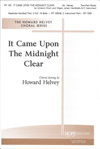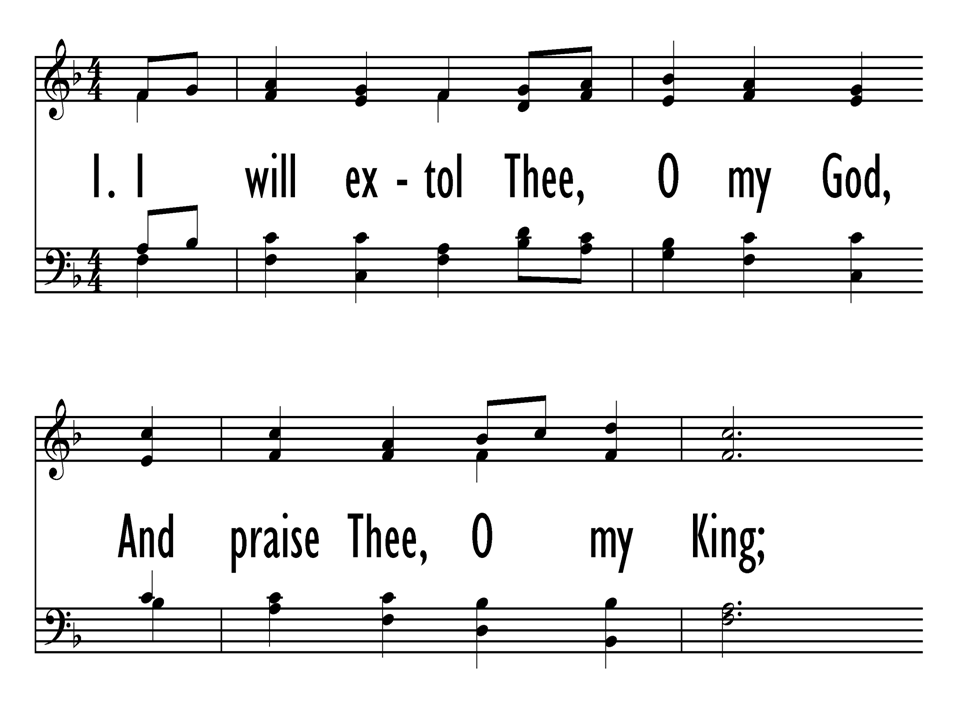- |
User Links
NOEL (Sullivan)

NOEL (Sullivan)
Adapter: Arthur Sullivan (1874)Published in 156 hymnals
Printable scores: PDF, MusicXML
Audio files: MIDI, Recording
Adapter: Arthur Sullivan
 Arthur Seymour Sullivan (b Lambeth, London. England. 1842; d. Westminster, London, 1900) was born of an Italian mother and an Irish father who was an army bandmaster and a professor of music. Sullivan entered the Chapel Royal as a chorister in 1854. He was elected as the first Mendelssohn scholar in 1856, when he began his studies at the Royal Academy of Music in London. He also studied at the Leipzig Conservatory (1858-1861) and in 1866 was appointed professor of composition at the Royal Academy of Music. Early in his career Sullivan composed oratorios and music for some Shakespeare plays. However, he is best known for writing the music for lyrics by William S. Gilbert, which produced popular operettas such as H.M.S. Pinafore (1878), The… Go to person page >
Arthur Seymour Sullivan (b Lambeth, London. England. 1842; d. Westminster, London, 1900) was born of an Italian mother and an Irish father who was an army bandmaster and a professor of music. Sullivan entered the Chapel Royal as a chorister in 1854. He was elected as the first Mendelssohn scholar in 1856, when he began his studies at the Royal Academy of Music in London. He also studied at the Leipzig Conservatory (1858-1861) and in 1866 was appointed professor of composition at the Royal Academy of Music. Early in his career Sullivan composed oratorios and music for some Shakespeare plays. However, he is best known for writing the music for lyrics by William S. Gilbert, which produced popular operettas such as H.M.S. Pinafore (1878), The… Go to person page >Tune Information
| Title: | NOEL (Sullivan) |
| Adapter: | Arthur Sullivan (1874) |
| Meter: | 8.6.8.6 |
| Incipit: | 12321 23432 55345 |
| Key: | F Major |
| Copyright: | Public Domain |
Texts
It Came Upon the Midnight ClearIt came upon the midnight clear,
that glorious song of old,
from angels bending near the earth
to touch their harps of gold:
"Peace on the earth, good will to men,
from heaven's all-gracious King."
The world in solemn stillness lay,
to hear the angels sing.
While shepherds watched their flocks by night,
all seated on the ground,
an angel of the Lord came down,
and glory shone around.
Alternative Tunes
Notes
The tune NOEL (also used at 185) is also known as EARDISLEY or GERARD. Arthur Seymour Sullivan (b Lambeth, London. England. 1842; d. Westminster, London, 1900) adapted this traditional English melody (probably one of the variants of the folk song "Dives and Lazarus"), added phrases of his own to recast the melody in common meter double, and published it first in his Church Hymns with Tunes (1874). In that collection Sullivan set this tune to the Christmas carol "It Came Upon a Midnight Clear," which explains one of the tune names.
Though NOEL has frequent changes of harmony, do not sing it too slowly; keep the rhythmic energy moving. Antiphonal performance may highlight the refrain (second half of st. 3 and 5) in this psalm: all sing stanzas 1, 3, and 5; alternate groups sing stanzas 2 and 4. The folk origin of the tune suggests unison singing to most, but Sullivan's harmony will attract some choristers. Either way, this is lively music.
Sullivan was born of an Italian mother and an Irish father who was an army bandmaster and a professor of music. Sullivan entered the Chapel Royal as a chorister in 1854. He was elected as the first Mendelssohn scholar in 1856, when he began his studies at the Royal Academy of Music in London. He also studied at the Leipzig Conservatory (1858-1861) and in 1866 was appointed professor of composition at the Royal Academy of Music.
Early in his career Sullivan composed oratorios and music for some Shakespeare plays. However, he is best known for writing the music for lyrics by William S. Gilbert, which produced popular operettas such as H.M.S. Pinafore (1878), The Pirates of Penzance (1879), The Mikado (1884), and Yeomen of the Guard (1888). These operettas satirized the court and everyday life in Victorian times.
Although he composed some anthems, in the area of church music Sullivan is best remembered for his hymn tunes, written between 1867 and 1874 and published in The Hymnary (1872) and Church Hymns (1874), both of which he edited. He contributed hymns to A Hymnal Chiefly from The Book of Praise (1867) and to the Presbyterian collection Psalms and Hymns for Divine Worship (1867). A complete collection of his hymns and arrangements was published posthumously as Hymn Tunes by Arthur Sullivan (1902). Sullivan steadfastly refused to grant permission to those who wished to make hymn tunes from the popular melodies in his operettas.
--Psalter Hymnal Handbook, 1988
Timeline
Arrangements
Harmonizations, Introductions, Descants, Intonations
|
Organ Solo
|
Piano Solo
|
Media
The Cyber Hymnal #2828
Text: If Human Kindness Meets ReturnThe Cyber Hymnal #3157
Text: I Will Extol Thee, O My GodThe Cyber Hymnal #6699
Text: A Thousand Years Have Come and GonePsalter Hymnal (Gray) #46
Text: God Is Our Refuge and Our StrengthPsalter Hymnal (Gray) #185
Text: I Will Extol You, O My GodWorship and Rejoice #388
Text: O God in Whom All Life Begins- MIDI file from Christian Classics Ethereal Hymnary #133
- MIDI file from The Cyber Hymnal #2828
- MIDI file from The Cyber Hymnal #3157
- MIDI file from The Cyber Hymnal #6699
- Audio recording from Glory to God: the Presbyterian Hymnal #53
- Audio recording from Glory to God: the Presbyterian Hymnal #308
- Audio recording from Lift Up Your Hearts: psalms, hymns, and spiritual songs #432
- Audio recording from Lift Up Your Hearts: psalms, hymns, and spiritual songs #432
- Audio recording from Lift Up Your Hearts: psalms, hymns, and spiritual songs #561
- Audio recording from Lift Up Your Hearts: psalms, hymns, and spiritual songs #561
- Audio recording from Lift Up Your Hearts: psalms, hymns, and spiritual songs #561
- Audio recording from Lift Up Your Hearts: psalms, hymns, and spiritual songs #561
- Audio recording from Lift Up Your Hearts: psalms, hymns, and spiritual songs #561
- Audio recording from Lift Up Your Hearts: psalms, hymns, and spiritual songs #561
- MIDI file from Psalter Hymnal (Gray) #46
- MIDI file from Psalter Hymnal (Gray) #46
- MIDI file from Psalter Hymnal (Gray) #185
- MIDI file from Psalter Hymnal (Gray) #185
- Audio recording from Small Church Music #1005
- Audio recording from Small Church Music #1005
- Audio recording from Small Church Music #3520
- MIDI file from TTT-Himnaro Cigneta #109
- MIDI file from Worship and Rejoice #388


 My Starred Hymns
My Starred Hymns







